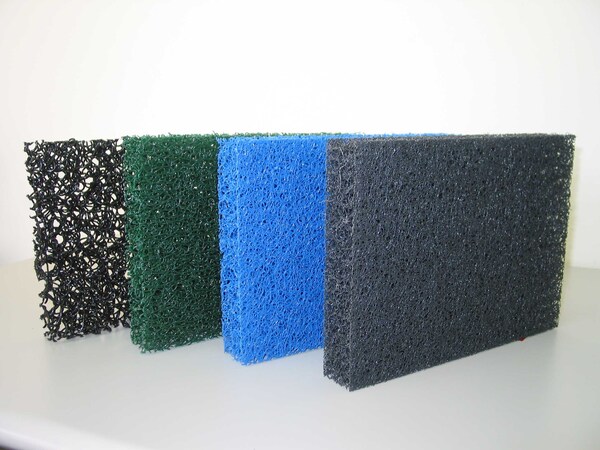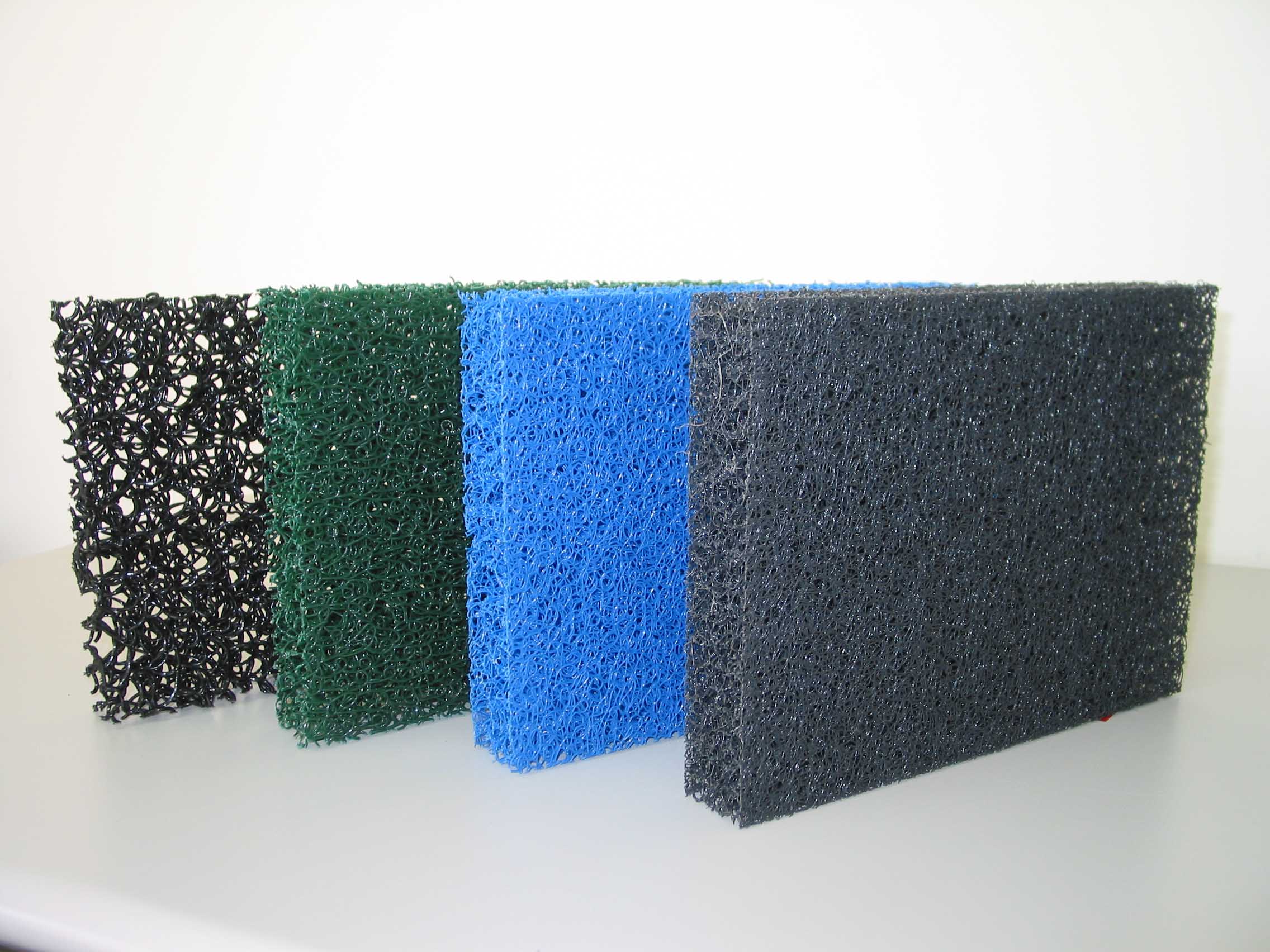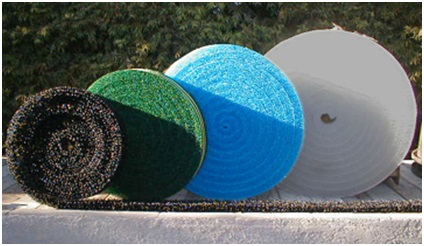Matala

Matala biofilters
Matala advanced bio-filter media
MATALA filter media act as versatile mechanical and biological filters and their unique technologies represent the latest generation in filtration on the market. They are used mostly in wastewater treatment plants, as well as for water purification in rivers or in fish-keeping.
The medium itself consists of twisted fibers of thermoplastic compounds – polypropylene.
Matala is an advanced, three-dimensional filter medium for the filtration of water whilst maintaining an optimal ecosystem. The very airy structure of the plastic fibers, combined with a large surface area, allows for the optimum stratification of bacteria.
- Made from polypropylen
- Suitable for water managment
- Can be offered in different sizes and colours

|
Biological surface for microbial growth |
The free volume in % |
|
|
BLACK |
150 m2/m3 |
92 % |
|
GREEN |
290 m2/m3 |
93 % |
|
BLUE |
365 m2/m3 |
94 % |
|
GREY |
460 m2/m3 |
94 % |
Benefits of MATALA
- four different densities of the filter material are available, enabling the creation of sequential mechanical and biological filtration
- good adhesive properties for nitrifying bacteria, which convert ammonia to nitrate
- the large surface area ensures the stable growth of bacteria
- free flow of water through the media
- very resistant to clogging
- easy to maintain
- stable, non-toxic and rigid material – polypropylene
- self-supporting (does not need additional support)
- easy to cut and secure
- lilght-weight (e.g. when compared to a sand filter)
Matala in roles:

Multi stage filter:

At the beginning of the waste water treatment process in biological treatment plants, the sludge water is loaded (contaminated) and has high levels of biochemical oxygen demand (BOD), indicating a large amount of dead organic matter which is processed by heterotrophic bacteria. These bacteria grow rapidly and form long chains. Thus the coarsest MATALA bio filters with a very low density (and with a relatively low surface area of 150 m2/m3) can be employed during activation.
In other sections the organic particles have already been digested by the heterotrophic bacteria and their waste products are used as food for the nitrification bacteria. These bacteria require a bio filter with a larger surface area to allow for intensive cleaning and in addition they do not produce such large clumps of particles. Therefore, it is advisable to use MATALA filters with a larger surface area of up to 290 m2/m3.
In order to purify the output and to reduce the BOD (e.g. from 30 ppm to 4 ppm), it is appropriate to combine the mid density MATALA 290 m2/m3 and the high density MATALA 365 m2/m3 filter mediums.
Further advantages of MATALA sheets:
The various densities allow us to combine them in sequence or separately to create unique filters to meet the specific needs of our customers. That is the biggest advantage offered by MATALA. No other media on the market provides such high performance sequential, progressive filtration.
MATALA sheets effectively separate the larger and smaller particles, which are further cleansed and subsequently released and passed over for fine filtering.
MATALA sheets have a further advantage and that is the free flow of water without causing unidirectional laminar flow, where there is zero flow at the boundary level, resulting in the intensive settling of biomass and clogging.
MATALA sheets have a high free volume (i.e. fibers occupy only 4–6% of the total filter volume; the remainder being occupied by water) = long retention time (retention time of the water in contact with the organic media).
MATALA sheets need no support structure. They are self-supporting.
Matala biofilters
Size calculator
Please input desired hydraulic flow and suspended solids content. Our calculator will suggest you optimum size of machine...
- WT primary sludge - raw sludge from activation (ČOV – surový kal z aktivace): 0,5–1%
- WWT secondary sludge - after final settling tank (ČOV – stabilizovaný, zahuštěný kal): 1,5–4 %
- Sludge from DAF (Kal z flotace): 2–4 %
- Biogas station sludges (Kaly z produkce bioplynu): 4–6 %
- Grease traps, oil separation (Lapáky tuku, olejové aplikace): 4-6%
Capacity of MP-DW - dry material flow per hour :
- MP-DW-131: 10 kg/h
- MP-DW-201: 30 kg/h
- MP-DW-301: 60 kg/h
- MP-DW-302: 120 kg/h
- MP-DW-401: 140 kg/h
- MP-DW-402: 280 kg/h
- MP-DW-403: 420 kg/h


